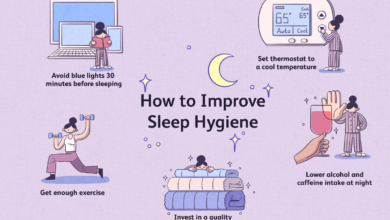Yoga for Mental Health: Unlocking Inner Peace and Emotional Balance

In today’s fast-paced world, Yoga for Mental Health: Unlocking Inner Peace and Emotional Balance has become a priority for many individuals seeking a better quality of life. With the demands of work, relationships, and daily life, it’s easy to feel overwhelmed, stressed, and emotionally drained. Many people are turning to yoga as a powerful tool to promote mental health and achieve emotional balance. Yoga has been practiced for thousands of years, not just as a physical discipline, but also as a spiritual and mental practice. It offers a holistic approach to well-being by addressing the mind, body, and spirit.
In this article, we will explore how yoga contributes to mental health, the science behind its benefits, and the different practices you can incorporate into your life to unlock inner peace and emotional stability.
The Science Behind Yoga and Mental Health
Before we dive into the specific benefits of yoga for mental health, it’s essential to understand the science behind why yoga is so effective. Research over the past few decades has confirmed what yogis have known for centuries—that yoga plays a significant role in improving mental health.
Yoga integrates movement, breathwork, and meditation, which help regulate the nervous system and reduce stress. When practiced consistently, yoga can lower levels of the stress hormone cortisol, which is linked to anxiety, depression, and other mental health issues. It also enhances the production of serotonin, dopamine, and endorphins, which are neurotransmitters responsible for happiness and emotional well-being.
Furthermore, yoga encourages mindfulness, a practice of being present in the moment. By focusing on the breath and the body, individuals are encouraged to let go of racing thoughts and emotional clutter, providing a sense of calm and clarity. This shift in focus can significantly reduce symptoms of anxiety, depression, and other mood disorders.
Benefits of Yoga for Mental Health
1. Reduces Stress and Anxiety
Yoga’s ability to reduce stress is one of the primary reasons why it is so effective for mental health. Stress is a common trigger for anxiety, and it often leads to an overactive sympathetic nervous system. This “fight or flight” response causes physical and emotional tension. Yoga’s slow, mindful movements and breathing exercises activate the parasympathetic nervous system, also known as the “rest and digest” system, helping to calm the body and mind.
Deep breathing, a central component of yoga, has been shown to reduce anxiety by regulating the breath and slowing the heart rate. It shifts the nervous system into a relaxed state, reducing the physical symptoms of stress, such as tension and rapid breathing.
2. Improves Mood and Emotional Regulation
Yoga encourages emotional regulation by promoting self-awareness and mindfulness. Through practices such as meditation and breathwork, yoga teaches individuals how to observe their thoughts and emotions without judgment. This ability to pause and reflect before reacting allows individuals to manage their emotions more effectively.
Research has shown that regular yoga practice increases the production of serotonin and dopamine, both of which are vital for regulating mood and promoting feelings of happiness and contentment. For individuals suffering from depression or mood swings, yoga provides a natural, drug-free way to boost emotional well-being.
3. Enhances Sleep Quality
Sleep disturbances are often linked to mental health issues such as anxiety and depression. When we experience stress, our minds can race, making it difficult to fall asleep or stay asleep. Yoga can help improve sleep quality by calming the nervous system and promoting relaxation before bed.
Certain yoga poses, such as forward bends restorative poses, and gentle stretches, are particularly effective at soothing the body and mind. The practice of deep breathing can also help signal to the body that it’s time to unwind, making it easier to drift off to sleep.
4. Builds Resilience and Coping Skills
Yoga not only helps individuals manage stress and negative emotions but also fosters resilience. The discipline of yoga encourages perseverance, mindfulness, and self-compassion. It teaches individuals to stay grounded and balanced, even in challenging circumstances. This makes yoga an excellent tool for building emotional resilience and coping with life’s difficulties.
Yoga poses that focus on balance, such as Tree Pose or Warrior III, requires both physical and mental stability. By practicing these poses, individuals learn to cultivate inner strength and remain steady despite external distractions or hardships.
5. Promotes Self-Awareness and Mindfulness
Yoga’s emphasis on mindfulness and self-awareness has a profound impact on mental health. As individuals practice yoga, they are encouraged to tune into their bodies and minds, becoming more attuned to their physical sensations, thoughts, and emotions. This heightened awareness allows individuals to recognize negative thought patterns and emotional triggers before they become overwhelming.
Mindfulness in yoga helps individuals become less reactive to stressors and more intentional in their responses. It teaches people how to observe their thoughts and emotions without being consumed by them, fostering a sense of clarity and emotional balance.
Types of Yoga for Mental Health
While all forms of yoga can benefit mental health, certain types may be especially helpful for addressing specific mental health issues.
Hatha Yoga
Yoga for Mental Health: Unlocking Inner Peace and Emotional Balance is a gentle, slow-paced practice that focuses on physical postures (asanas), breathing techniques (pranayama), and meditation. It is ideal for beginners and those looking for a calming practice to relieve stress and anxiety. Hatha yoga promotes relaxation, improves flexibility, and helps individuals develop mindfulness.
Vinyasa Yoga
Vinyasa yoga is a more dynamic and flow-based practice that connects breath with movement. It is ideal for those who want a more active yoga practice that also promotes mental clarity and emotional balance. The continuous movement in vinyasa Yoga for Mental Health: Unlocking Inner Peace and Emotional Balancecan help release tension and build mental resilience.
Restorative Yoga
Restorative yoga is a deeply relaxing practice that uses props such as blankets, bolsters, and blocks to support the body in passive poses. The focus is on relaxation and deep breathing, which calms the nervous system and reduces stress. This form of yoga is particularly beneficial for individuals who suffer from chronic stress, insomnia, or burnout.
Kundalini Yoga
Kundalini yoga combines physical postures, breathwork, chanting, and meditation to awaken the energy at the base of the spine. This practice is particularly effective for those seeking emotional healing and spiritual growth. Kundalini yoga encourages self-awareness and emotional release, making it an excellent choice for those looking to unlock inner peace and balance.
Yin Yoga
Yin yoga is a slow-paced style of yoga where poses are held for extended periods (typically 3-5 minutes) to target deep connective tissues. This meditative practice is known for its calming and centering effects, making it a great option for those looking to reduce anxiety, improve emotional regulation, and cultivate mindfulness.
How to Start Practicing Yoga for Mental Health
Starting a yoga practice doesn’t have to be complicated or overwhelming. Whether you’re a beginner or an experienced practitioner, there are a few simple steps you can take to begin reaping the mental health benefits of yoga.
1. Start Slow
If you’re new to yoga, it’s important to start slowly and allow yourself time to get accustomed to the practice. Begin with short sessions, focusing on basic poses and breathing techniques. As you become more comfortable, you can gradually increase the length and intensity of your practice.
2. Focus on Breath
One of the most powerful aspects of yoga is breathwork. Focus on your breath throughout your practice, aiming to inhale deeply and exhale slowly. This will help activate the relaxation response and bring a sense of calm to your body and mind.
3. Be Consistent
Like any form of self-care, consistency is key to experiencing the mental health benefits of yoga. Try to practice yoga at least a few times a week, even if it’s just for 10-20 minutes each session. Regular practice will help reduce stress, improve mood, and enhance emotional resilience.
4. Find the Right Style for You
Different types of yoga offer unique benefits, so it’s important to find a style that suits your needs. If you’re looking for a calming, restorative practice, try Hatha or Restorative yoga. If you prefer something more dynamic and energizing, consider Vinyasa or Kundalini yoga.
5. Practice Mindfulness
During your yoga practice, focus on being present in the moment. Pay attention to how your body feels in each pose and observe your thoughts without judgment. This mindfulness practice will help you cultivate emotional balance and reduce mental chatter.
Conclusion
Yoga is an incredibly effective practice for improving mental health and emotional well-being. It offers a holistic approach to managing stress, reducing anxiety, improving mood, and cultivating mindfulness. By incorporating yoga into your routine, you can unlock inner peace and achieve emotional balance, ultimately leading to a healthier, more fulfilling life.
If you’re looking to improve your mental health, consider giving yoga a try. Whether through gentle stretching, breathwork, or meditation, yoga has the potential to transform your mind and body, allowing you to live with more clarity, peace, and emotional resilience.
FAQs about Yoga for Mental Health
1. Can yoga help with anxiety and depression?
Yes, yoga has been shown to reduce anxiety and depression by regulating the nervous system, decreasing cortisol levels, and increasing the production of feel-good neurotransmitters like serotonin and dopamine.
2. How often should I practice yoga for mental health?
For the best results, aim to practice yoga at least 2-3 times a week. Even short, 15-20-minute sessions can help reduce stress and improve emotional well-being.
3. What type of yoga is best for reducing stress?
Restorative yoga and Hatha yoga are excellent choices for reducing stress due to their gentle, calming nature. They focus on slow movements and deep breathing, which promote relaxation.
4. Can yoga improve my sleep?
Yes, yoga can improve sleep quality by calming the nervous system and helping to release physical and mental tension. Poses such as forward bends and restorative postures can help prepare the body for restful sleep.
5. Do I need to be flexible to practice yoga for mental health?
No, flexibility is not required to practice yoga for mental health. Yoga is about mindfulness and body awareness, not about achieving perfect flexibility. Anyone can practice yoga, regardless of their level of flexibility.
You May Also Read: https://usasmartnews.com


